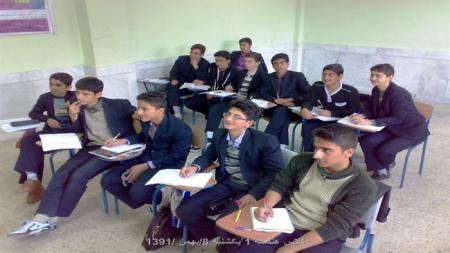
There may be many predictors of academic achievement. Also, there are many variables that have significant relationship with academic achievement. Aspiration is one of these variables.
Aspirations are abstract statements or values and beliefs regarding future plans (educational or/and employment plans) made by young people, i.e. the educational level a student wishes to achieve. According to Marjoribanks (1998), aspirations are defined as idealistic values that do not necessarily reflect specific socio-economic realities that might be relevant in determining future mobility.
There is another variable which may affect the future educational behavior of students, i.e. expectations. By future educational behavior, we mean the students’ attempt to continue their higher education at the university or just give up studies after completing their high school.
Expectations may be considered as a predictor of academic achievement. The correlation between expectations and academic achievement may be both negatively and positively significant.
Another related question is whether raising aspirations will enhance educational achievement. Some studies have at least questioned this type of relationship (Gorard et al., 2012).
Aspiration is another variable that has significant relation with academic achievement. Therefore, some studies show that raising high aspirations among students, or having such aspirations without being able to achieve them, is not in the interests of the students because this will cause their disappointment, frustration and finally rendering them as ‘lost talents’ (Hanson, 1994).
Another important point is that the combination of both aspirations and expectations can have significant relations with academic achievement.
Kattab (2015) in his study found that compared to students with low aspirations and low expectations, having higher aspirations improves school achievement even if expectations are low. This finding indicates that students’ aspirations and expectations per se, cannot be used as predictors for future educational behavior in isolation from each other, or indeed from the students’ own school achievement (khattab, 2015).
Some studies on aspirations and school achievement have investigated the question whether or not aspirations can be used as a vehicle to raise school achievement (Gorard et al., 2012). The findings of most of these studies show that the correlation between raising aspirations and school achievement is either very slim or highly questionable. Some of these studies show that some students (e.g. working class) tend to hold high aspirations even beyond what the market can support (St Clair et al., 2013), which has led the researchers to question the assumption among politicians and policy makers that raising aspirations will enhance educational achievement (Gorard et al., 2012).
Different combinations of aspirations, expectations and school achievement can influence students’ future educational behavior (applying to university at the age of 17–18). Students with either high aspirations or high expectations have higher school achievement than those with both low aspirations and low expectations. Furthermore, complete alignment between high aspirations, high expectations and high achievement is the most important predictor of future educational behavior among students (Khattab, 2015).
Interestingly, according to existing literature, low expectations do not negatively impact students’ future behavior when they have high aspirations accompanied with high school achievement.
Overall, recent studies show that there are significant relations between aspirations, expectations and academic achievement of students. But these relations are not always positive, rather is some cases they are negative.
* Robabeh Moosavi Jashni is advisor of Department of Education, District 1, Shiraz, Fars Province.
References
Gorard, S., See, B. H. & Davies, P. (2012) The impact of attitudes and aspirations on educational attainment and participation (York, Joseph Rowntree Foundation). Available at: jrf. org. uk/publications/aspirations-educational-attainment-participation
Hanson, S.-L. (1994) Lost talent: Unrealized educational aspirations and expectations among U.S. youths, Sociology of Education, 67 (3), 159–183.
Khattab, N. (2014) How and when do educational aspirations, expectations and achievement align? Sociological Research Online, 17 (4), 7.
Marjoribanks, K. (1998) Family background, social and academic capital, and adolescents’ aspirations: A mediational analysis, Social Psychology of Education, 2, 177–197.
